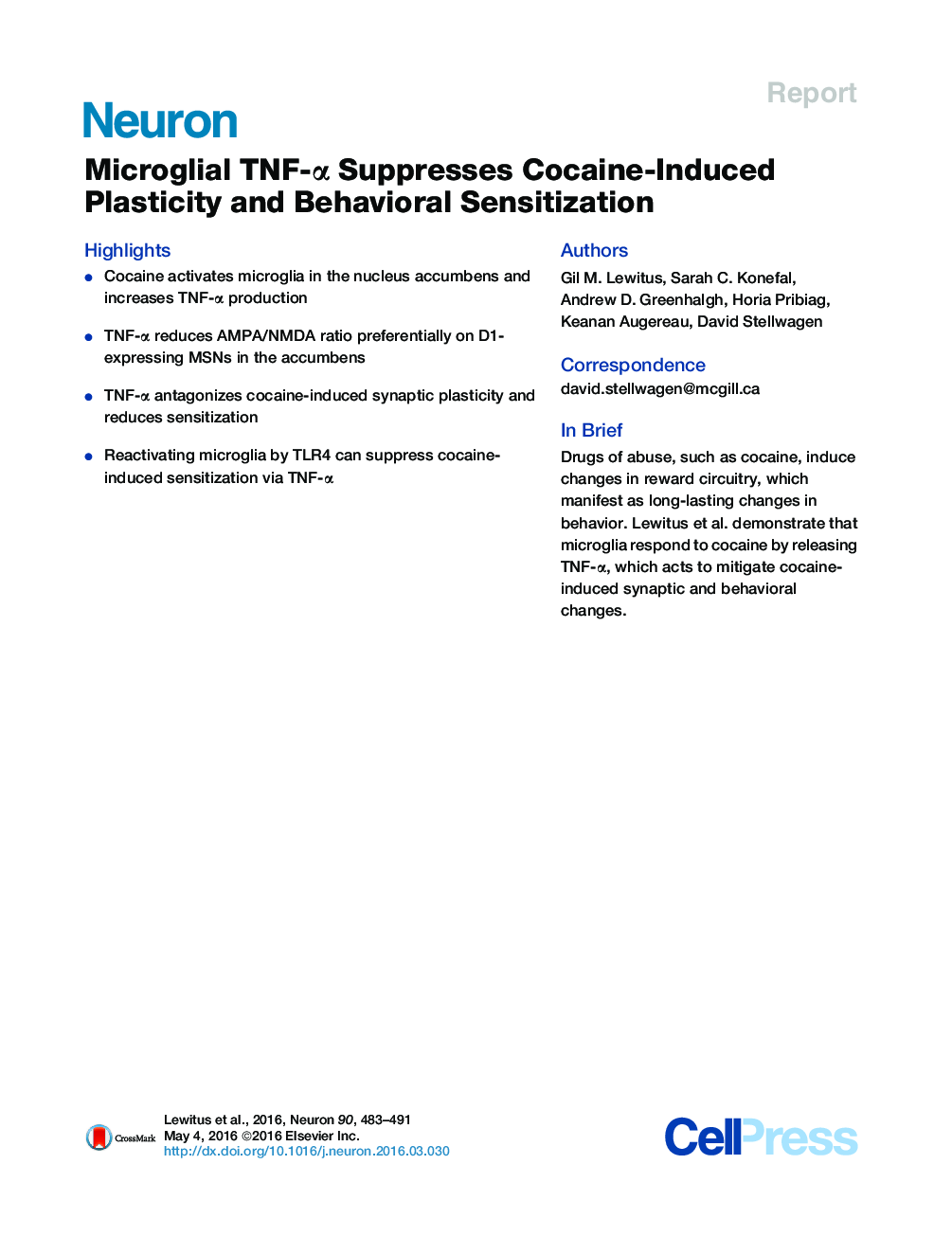| کد مقاله | کد نشریه | سال انتشار | مقاله انگلیسی | نسخه تمام متن |
|---|---|---|---|---|
| 4320702 | 1291525 | 2016 | 9 صفحه PDF | دانلود رایگان |

• Cocaine activates microglia in the nucleus accumbens and increases TNF-α production
• TNF-α reduces AMPA/NMDA ratio preferentially on D1-expressing MSNs in the accumbens
• TNF-α antagonizes cocaine-induced synaptic plasticity and reduces sensitization
• Reactivating microglia by TLR4 can suppress cocaine-induced sensitization via TNF-α
SummaryRepeated administration of cocaine results in the development of behavioral sensitization, accompanied by a decrease in excitatory synaptic strength in the nucleus accumbens (NAc) through an unknown mechanism. Furthermore, glial cells in the NAc are activated by drugs of abuse, but the contribution of glia to the development of addictive behaviors is unknown. Tumor necrosis factor alpha (TNF-α), an inflammatory cytokine released by activated glia, can drive the internalization of synaptic AMPA receptors on striatal medium spiny neurons. Here we show that repeated administration of cocaine activates striatal microglia and induces TNF-α production, which in turn depresses glutamatergic synaptic strength in the NAc core and limits the development of behavioral sensitization. Critically, following a period of abstinence, a weak TLR4 agonist can reactivate microglia, increase TNF-α production, depress striatal synaptic strength, and suppress cocaine-induced sensitization. Thus, cytokine signaling from microglia can regulate both the induction and expression of drug-induced behaviors.
Journal: - Volume 90, Issue 3, 4 May 2016, Pages 483–491